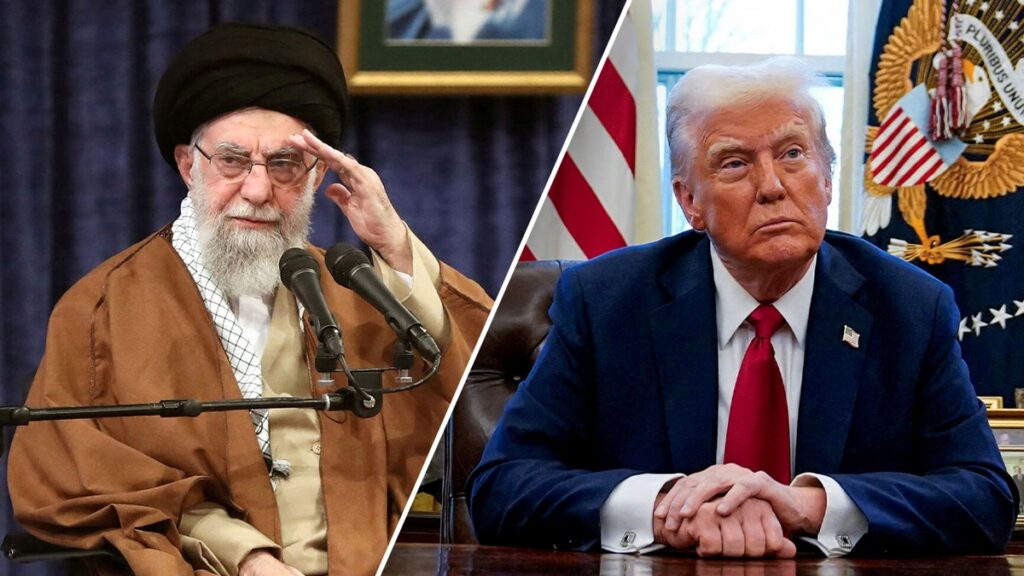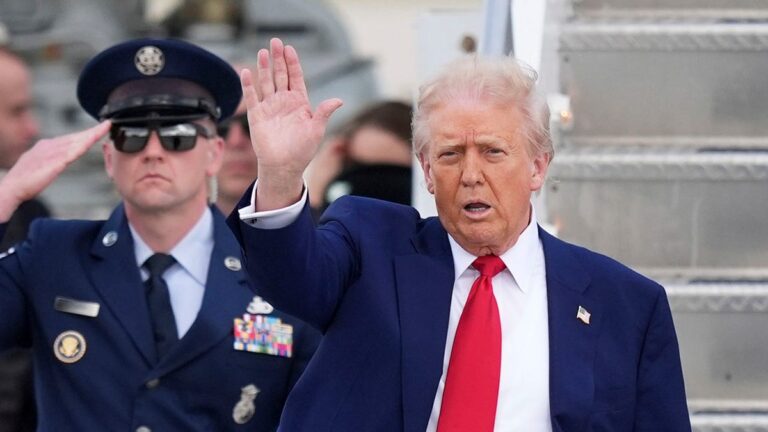
Trump’s Iran policy has mirrored Reagan’s doctrine in countering the Soviets. Like the former president, Trump has consistently increased his leverage against Tehran.
The Islamic regime is weak and teetering on its own structural flaws, but no one would know it by the rhetoric coming out of Iran. In fact, just as Moscow did before the collapse of the Soviet Union, Tehran is deflecting blame for troubles at home and engaging in double-talk abroad.
Ask any Iranian observer and they will tell you that obfuscation has been standard practice of the regime since the Islamic Revolution.
While U.S. Special Envoy to the Middle East Steve Witkoff is preparing to meet his Iranian counterparts in Oman this Saturday, Tehran continues to quibble over whether the two will ‘talk or ‘negotiate’ or whether they are ‘indirect’ or ‘direct’.
AHEAD OF TRUMP ADMIN-IRAN TALKS, NEW REPORT SAYS IRAN NUCLEAR THREAT RISES TO ‘EXTREME DANGER’
“The Islamic Republic resembles a late-stage Soviet Union,” writes Iran expert Karim Sadjadpour, “economically and ideologically bankrupt and reliant on repression for its survival.”
To borrow from President Donald Trump, the clerics in Iran “do not have the cards.” Tehran’s proxies such as Hamas and Hezbollah are hurting or on life support, the population is openly defying the authorities, the currency has plummeted, Biden’s policy of looking the other way on sanctions has been reversed by President Trump, and Israeli Prime Minister Benjamin Netanyahu stands ready to deter the regime from acquiring nuclear weapons.
History has shown us that authoritarian regimes collapse slowly but spectacularly. A few years before the disintegration of the Soviet Empire in 1989—when deep cracks had begun to appear in the Kremlin—Soviet General Secretary Konstantin Chernenko—who led between Andropov and Gorbachev—stated: “If anyone harbors the illusion that the Soviet Union can be intimidated by force…. they are gravely mistaken. Such miscalculations could have catastrophic consequences.”
TRUMP HAS A TIMELINE IN MIND FOR IRAN NUKE DEAL, TAPS ISRAEL TO LEAD ANY POTENTIAL MILITARY ACTION
To be sure, there are glaring differences between the Soviet Union of the mid-1980s and the Islamic Republic of the mid-2020s. Despite its land grab, Russia is not a revolutionary state. It has consistently sought to create a buffer zone on its western border to deter American power and influence, but it has yet to try and topple America itself.
The Islamic regime, on the other hand, is a revolutionary force disguised as a sovereign state. Its stated goal is to export the revolution and establish a global Islamic caliphate. Regionally, it has continued to destabilize the countries in its periphery. Farther away, it has infiltrated western societies through massive cyber propaganda and assassination attempts.
There are also fundamental differences between Presidents Reagan and Trump. Where Reagan was forthright about his disdain for communist Russia, relegating “the evil empire” to “the ash heaps of history,” President Trump has struck a less stringent tone, offering direct talks while also threatening “strong” military action.
More broadly, Ronald Reagan regarded his presidency as the battle of good vs. evil and feared a world-wide nuclear Armageddon if the Russians were not stopped. President Trump views the world as a series of transactions waiting to be negotiated and fears the loss of American primacy on the world stage.
CLICK HERE FOR MORE FOX NEWS OPINION
A successful outcome for President Trump rests on removing the specter of a nuclear-armed Iran so that he can devote his energies to China and the broader trade negotiations.
By default, or design, President Trump’s Iran policy has mirrored President Reagan’s doctrine in countering the Soviets. Like the former American president, Trump has consistently increased his leverage against Tehran—the Abraham Accords and military and moral support for Israel are two such examples— so that he can exact a better outcome during negotiations.
This strategy is in line with Reagan’s National Security Decision Directives 75 (NSDD 75) a comprehensive set of interdepartmental strategies that countered the Soviets along the three prongs of blocking and rolling back Soviet adventurism, increasing internal pressure, and pursuing direct negotiations from a position of strength.
NSDD 75 was further strengthened by Reagan’s firm belief that like a Potemkin village, the Soviets’ power was illusory and that deep flaws hid behind the Kremlin façade.
For his part, President Trump has not wavered from his campaign message that “Tehran can’t have nuclear weapons.” He has continued to tighten the noose around Iran while insisting they agree to direct talks. Such a move has rattled Iranian officials, who must now walk the tightrope of repelling American demands while retaining their hold on power.
President Reagan’s doctrine of pressuring the Soviets on all fronts did not end well for the USSR, as it collapsed in less than six years after his signing of NSDD 75 in 1983. Whether the parties in Oman “negotiate” face -to-face or “talk” in different rooms entirely—Tehran will be well-advised to remember that Moscow could not afford to snub Washington and Tehran cannot either.






